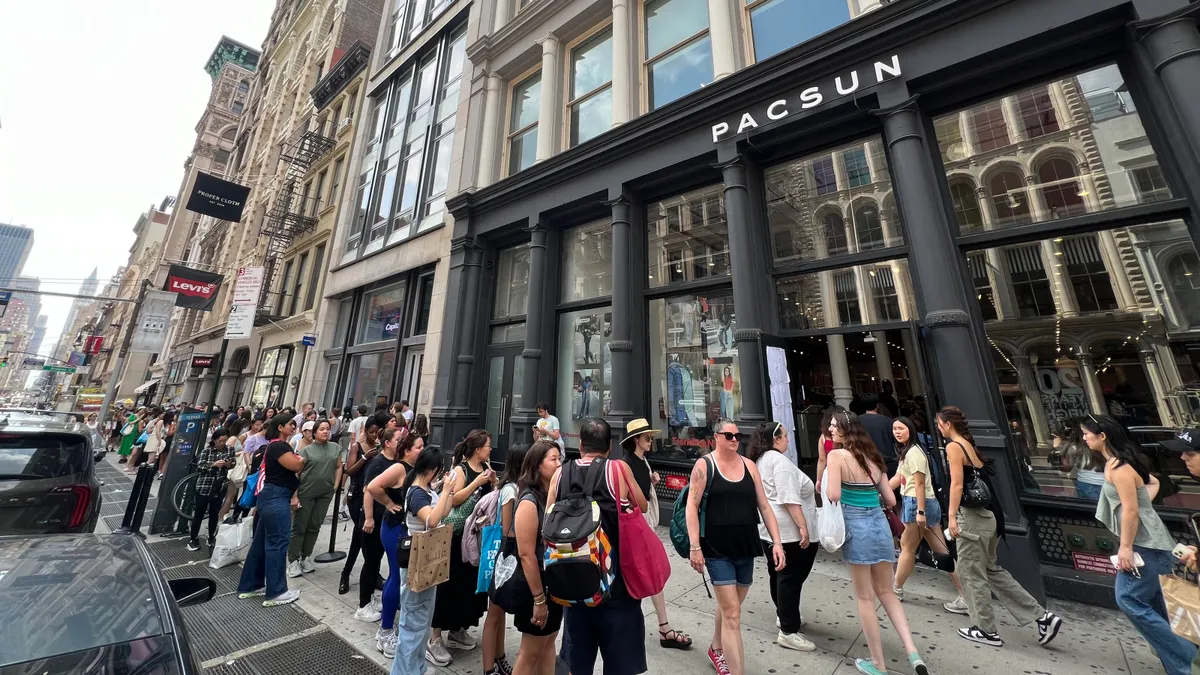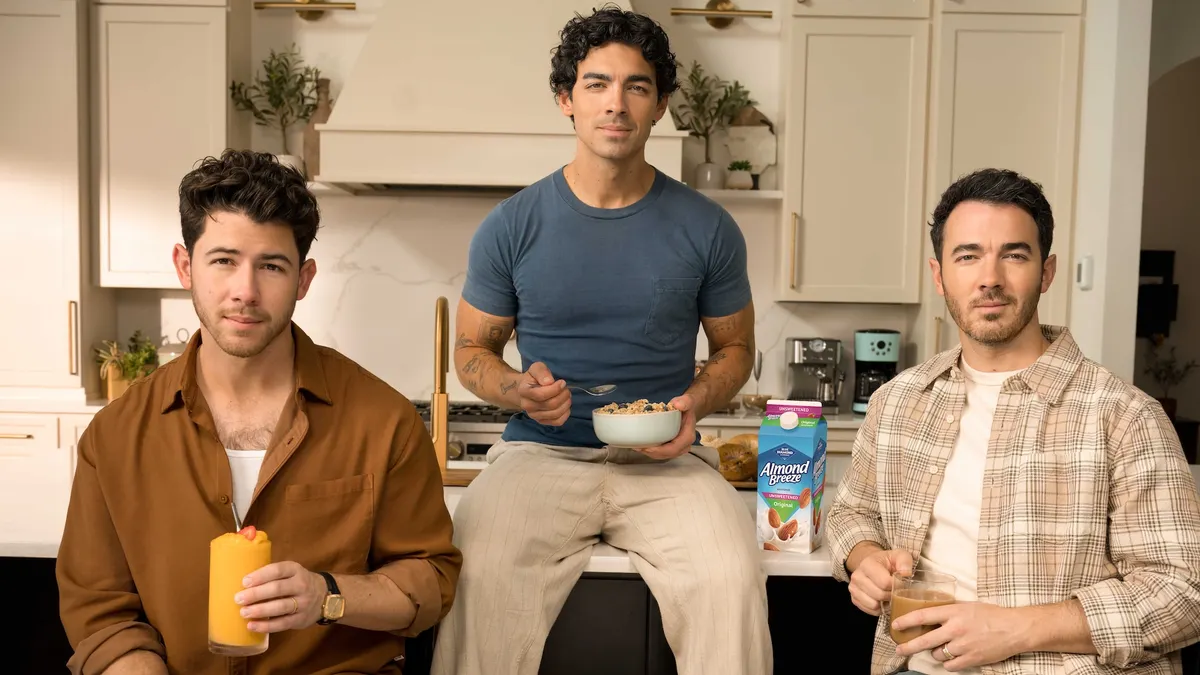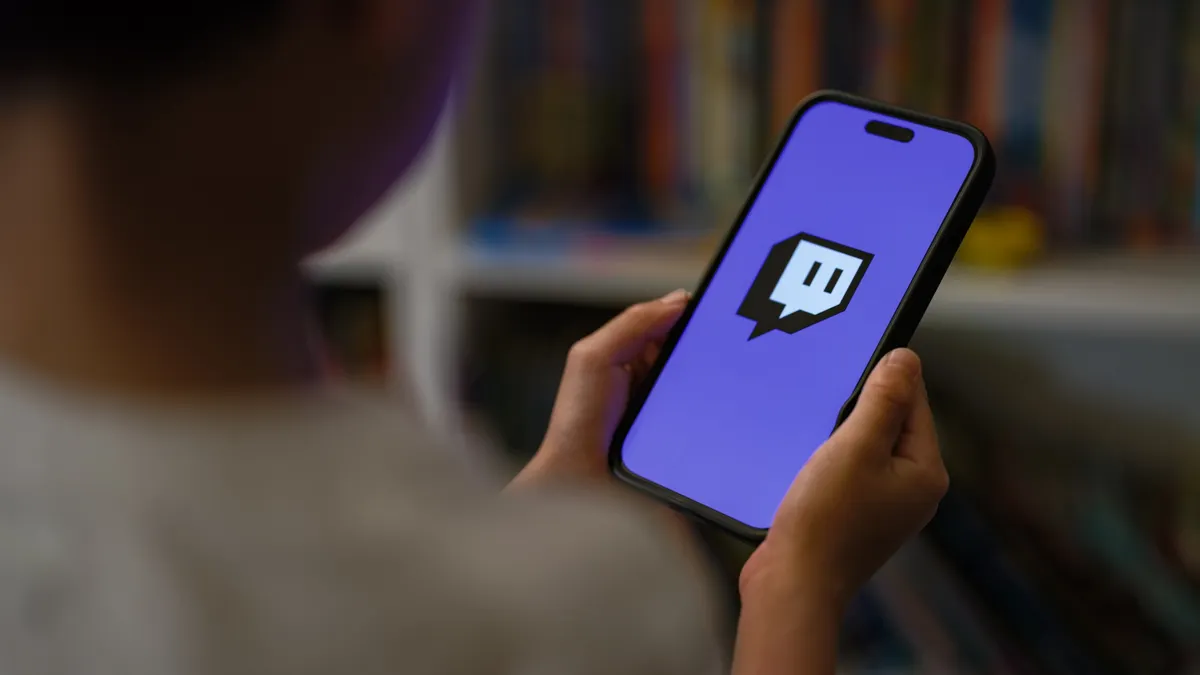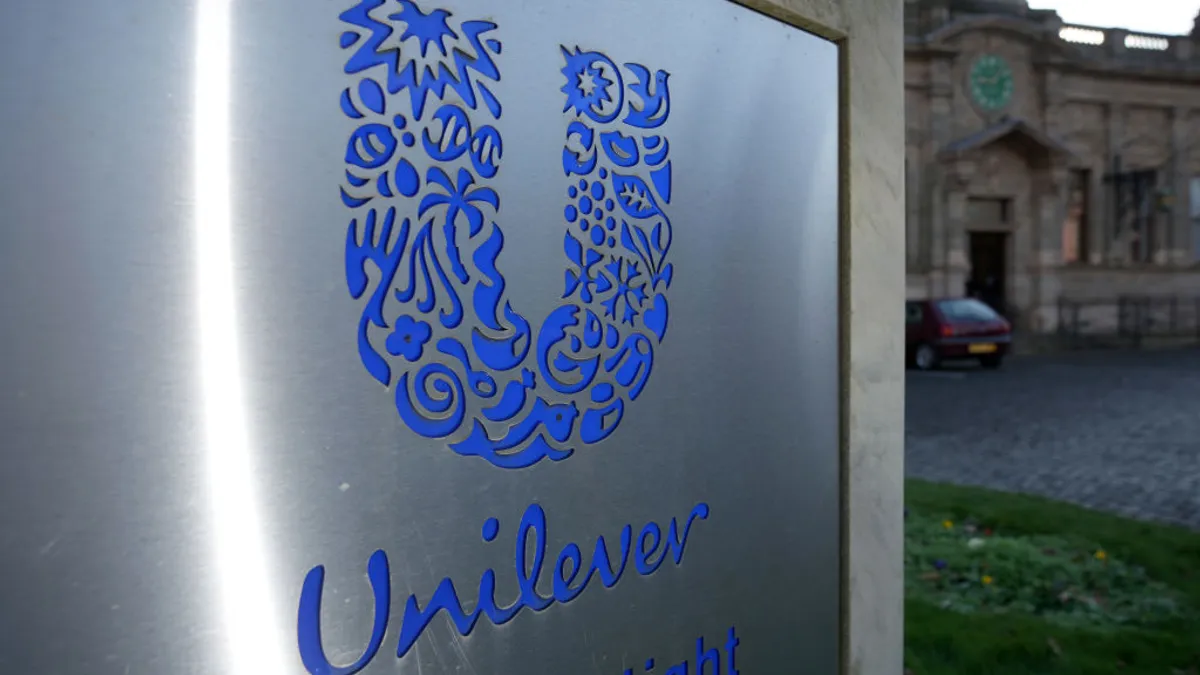NEW YORK — Pacsun was early to jump on TikTok, fast accruing over 2 million followers on an app that has become a crucial means for connecting with the brand’s target audience of 16-to-24-year olds. Five years since joining the platform, the mall retailer continues to make TikTok part of its marketing to Gen Z, and increasingly, a lever for sales, though the gold rush may soon be coming to an end.
Like many businesses, Pacsun is weighing what will happen if the video-sharing app, which is owned by Chinese technology firm ByteDance, gets banned in the U.S. on Jan. 19 over national security concerns. The possibility that TikTok could go dark in just a few days time appears likely following a series of legal setbacks, setting the stage for a change that would shift around a significant chunk of ad spending while upending a thriving creator ecosystem. TikTok’s global ad revenue was forecast by researcher WARC to top $23 billion in 2024, but the app’s real power is as a trendsetter that can make or break products virtually overnight.
At the National Retail Federation’s Big Show on Tuesday, Pacsun leadership sounded confident that the TikTok model of reaching consumers with addictive, authentic-feeling and shoppable videos could be replicated elsewhere, but the near-term pain to creators — which the platform has called its “lifeblood” — will be sharp.
“I’m not concerned about that way of engaging with the consumer going away,” said Pacsun CEO Brieane Olson during an NRF keynote talk with CNBC reporter Melissa Repko, adding that supporting the creator community is part of the company’s values-based approach. “There is a lot of concern for those creators about the immediacy of what’s next right away should [the ban] happen.”
Keeping an open platform
Privately-held Pacsun has started to see success getting people to purchase products directly from social apps, a model that is popular in other markets like Asia but has been slow to catch on in the U.S. Pacsun advised on the development of TikTok Shop on the back end and was among the e-commerce marketplace’s earliest partners, a relationship that has paid off as the offering gains traction following its formal 2023 launch.
TikTok Shop generated more than $100 million in single-day sales on Black Friday, tripling its take from the same day the year prior. In the past 18 months, Pacsun has sold nearly half a million pairs of jeans through TikTok livestreaming alone, according to Olson.
“It’s a really significant number,” the executive said of the denim bonanza. “What’s more interesting, I think, is the halo [effect] that we’ve created in our stores, on all of our other channels and in our community of people who want to get the jeans that they saw on TikTok.”
Pacsun resonates on TikTok not only through close ties to the app itself but also through its approach to creator partnerships, Olson explained. Rather than relying on a small pool of high-profile influencers to hawk products, the retailer keeps what the CEO described as an “open platform,” letting everyday users talk up apparel like jeans. One account that recently helped drive sales for a model of baggy denim had only about 5,000 followers, a drop in the bucket compared to the upper echelons of social media stardom, where a single sponsored post can come with eye-popping price tags.
“There’s no approval process and you can be an ambassador for the denim and tell your story in whatever way, zero controls,” said Olson.
The ability to rely on TikTok creators for transacting could be fatally hamstrung in the weeks ahead, and many of the app’s most ardent posters don’t seem to have much in the way of a contingency plan beyond pleading for their fans to follow them elsewhere. There is no shortage of TikTok competitors to turn to — Pacsun also works with rivals like YouTube Shopping and Pinterest, the latter of which played a central role in its latest fall campaign — but replicating the same magic may take time as users mull where next to spend their hours scrolling algorithmically curated feeds.
Olson noted that Pacsun used to run livestreaming through its own website back in 2019 before experimenting with Meta Platforms and finally taking advantage of TikTok. Her hope was that someone in a dorm room or indeed on the nearby NRF exhibitor floor was in the process of coming up with their own take on livestreaming social video.
“From a social commerce standpoint, that will continue to be a focus, irrespective of channel and what might happen,” said Olson.
Staying committed
Pacsun aims to keep its finger on the cultural pulse amid these changes with a continued premium on social listening. Those capabilities have helped affirm the retailer’s larger positioning around purpose-driven marketing at a time when many other businesses are pulling back on diversity, equity and inclusion commitments.
“Our market is Gen Z and our forthcoming market is Gen Alpha, and they are a value-driven, purpose-driven generation,” said Olson. “They want us as a brand to rally around creating a better place for them in the world, and they’re going to ultimately vote for those brands when they make their purchases.”
Having a strong brand purpose could help Pacsun retain a loyal audience whether or not TikTok is banned. Olson pushed back against the perception that Gen Z is not particularly brand loyal, suggesting that marketers miss connecting with the generation on a values level and by failing to view its members as co-collaborators on marketing initiatives.
“It’s actually a really interesting time and an interesting opportunity for brands to take a step back and really ask the question of who is in control, who has the power in the relationship?” the executive said.



















